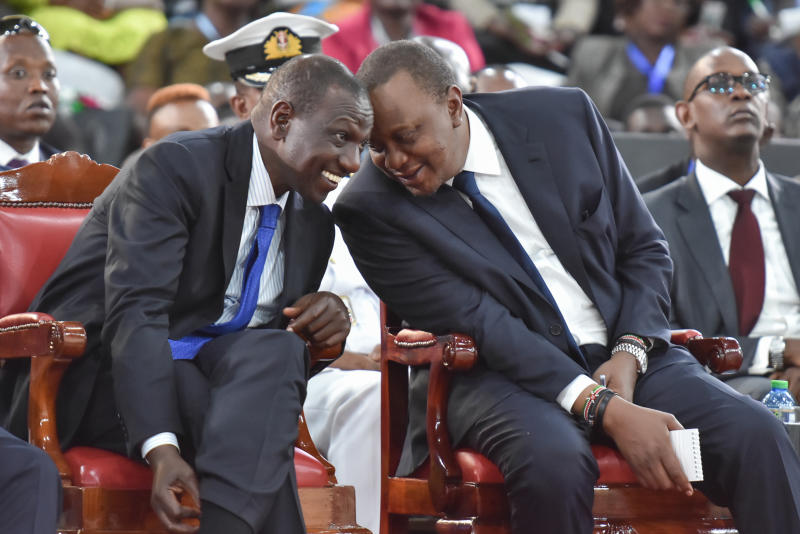×
The Standard e-Paper
Join Thousands Daily

President Uhuru Kenyatta chats with his Deputy William Ruto during the National Anti-Corruption Conference at Bomas of Kenya, Nairobi. [Jonah Mwangi, DPPS]
In December 2002, former President Mwai Kibaki proclaimed a “zero tolerance to corruption” agenda. The National Rainbow Coalition (Narc) calculation was simple. By its internal workings, Sh68 billion would be saved and diverted towards proper government expenditure.